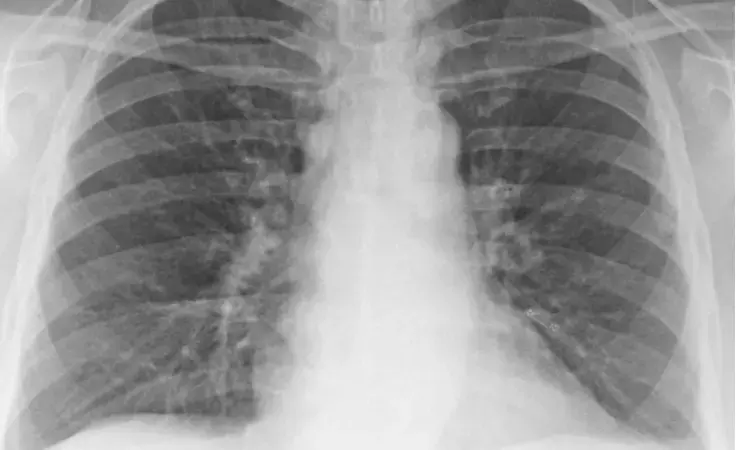- Home
- Medical news & Guidelines
- Anesthesiology
- Cardiology and CTVS
- Critical Care
- Dentistry
- Dermatology
- Diabetes and Endocrinology
- ENT
- Gastroenterology
- Medicine
- Nephrology
- Neurology
- Obstretics-Gynaecology
- Oncology
- Ophthalmology
- Orthopaedics
- Pediatrics-Neonatology
- Psychiatry
- Pulmonology
- Radiology
- Surgery
- Urology
- Laboratory Medicine
- Diet
- Nursing
- Paramedical
- Physiotherapy
- Health news
- Fact Check
- Bone Health Fact Check
- Brain Health Fact Check
- Cancer Related Fact Check
- Child Care Fact Check
- Dental and oral health fact check
- Diabetes and metabolic health fact check
- Diet and Nutrition Fact Check
- Eye and ENT Care Fact Check
- Fitness fact check
- Gut health fact check
- Heart health fact check
- Kidney health fact check
- Medical education fact check
- Men's health fact check
- Respiratory fact check
- Skin and hair care fact check
- Vaccine and Immunization fact check
- Women's health fact check
- AYUSH
- State News
- Andaman and Nicobar Islands
- Andhra Pradesh
- Arunachal Pradesh
- Assam
- Bihar
- Chandigarh
- Chattisgarh
- Dadra and Nagar Haveli
- Daman and Diu
- Delhi
- Goa
- Gujarat
- Haryana
- Himachal Pradesh
- Jammu & Kashmir
- Jharkhand
- Karnataka
- Kerala
- Ladakh
- Lakshadweep
- Madhya Pradesh
- Maharashtra
- Manipur
- Meghalaya
- Mizoram
- Nagaland
- Odisha
- Puducherry
- Punjab
- Rajasthan
- Sikkim
- Tamil Nadu
- Telangana
- Tripura
- Uttar Pradesh
- Uttrakhand
- West Bengal
- Medical Education
- Industry
Pulmonary artery pressure monitoring useful even in chronic HF patients who did not require recent hospitalization: Study

USA: An analyis of the GUIDE-HF study revealed that wireless pulmonary artery pressure monitoring with CardioMEMS (Abbott) could be an option in patients with chronic heart failure (HF) who have increased natriuretic peptides and presymptomatic congestion but have not had a recent hospitalization.
CardioMEMS is an implantable censor that was approved by the US Food and Drug Administration as a preventive strategy to reduce hospitalization risk in those who have had a hospital stay for HF within the prior year in patients with class III HF. In the GUIDE-HF trial since slightly less than half of all patients were enrolled on the basis of elevated natriuretic peptides alone, the researchers compared their outcomes with patients in the trial with a recent hospitalization by treatment assignment.
The GUIDE-HF trial, findings of which were resented and published in 2021 was aimed at examining 12-month outcomes in two types of stable outpatients: those with mild or severe HF symptoms (NYHA class II or IV) and those with elevated natriuretic peptides without a recent HF hospitalization. The patients were implanted with the sensor. They were then randomised to pulmonary artery pressure monitoring or usual care with no access to the sensor data.
The findings of the analysis were presented by Akshay S. Desai, Brigham and Women's Hospital, Boston, MA, in a late-breaking presentation at the inaugural Technology and Heart Failure Therapeutics (THT) 2022 meeting in New York.
"Our conclusions from this analysis are that despite lower event rates in those with elevated natriuretic peptides but no recent heart failure hospitalizations, the effects of hemodynamic-guided heart failure management were similar across enrollment strata," Desai told tctMD.
Findings showed no statistically significant differences in the primary endpoint between those managed hemodynamically or with usual care. The study at that time was however was impacted by the COVID-19 pandemic resulting in a marked reduction in hospitalizations for HF. Recently, the researchers from the GUIDE-HF trial presented a subgroup analysis of clinical events that occurred before March 2020, which showed a statistical advantage in hemodynamically managed patients, regardless of ejection fraction status, driven by fewer HF hospitalizations. The latest analysis focused on presymptomatic patients. The outcomes were analyzed by Dr. Desai and colleagues by treatment enrollment for the full study duration, as well as for the pre-COVID period only.
The analysis revealed the following findings:
- For the primary endpoint (all-cause mortality, HF hospitalization, or urgent HF visits), hemodynamic-guided management resulted in an 8% decrease in the group with prior hospitalization and a 14% decrease in the elevated natriuretic peptides group.
- For the endpoint of HF hospitalization alone, there was a 16% decline in the prior hospitalization group and a 12% decline in the elevated natriuretic peptides group.
- Compared with patients with a prior hospitalization (n = 557), those with elevated natriuretic peptides alone and no prior hospitalization (n = 442) were older, more often white, had lower body mass index, were less likely to have diabetes, were more likely to have atrial flutter/fibrillation, and had higher Kansas City Cardiomyopathy Questionnaire (KCQQ) scores and longer 6-minute walk times.
- The pre-COVID analysis showed an advantage for hemodynamic-guided HF management in the overall cohort, with a reduction in events compared with usual care (HR 0.81). This effect was similar in those with a prior hospitalization and those with elevated natriuretic peptides only, and no treatment by enrollment stratum interaction.
- A similar pattern was seen in the full study duration. Here, the reduction in events with hemodynamic-guided care versus usual care missed statistical significance (HR 0.88), however, and the number of events in each group was small. In the analysis looking at the impact on HF hospitalizations only, hemodynamic-monitoring trended better than usual care, but was not statistically significant in the elevated natriuretic peptides group in either the pre-COVID or full analysis.
Dr Kamal Kant Kohli-MBBS, DTCD- a chest specialist with more than 30 years of practice and a flair for writing clinical articles, Dr Kamal Kant Kohli joined Medical Dialogues as a Chief Editor of Medical News. Besides writing articles, as an editor, he proofreads and verifies all the medical content published on Medical Dialogues including those coming from journals, studies,medical conferences,guidelines etc. Email: drkohli@medicaldialogues.in. Contact no. 011-43720751


